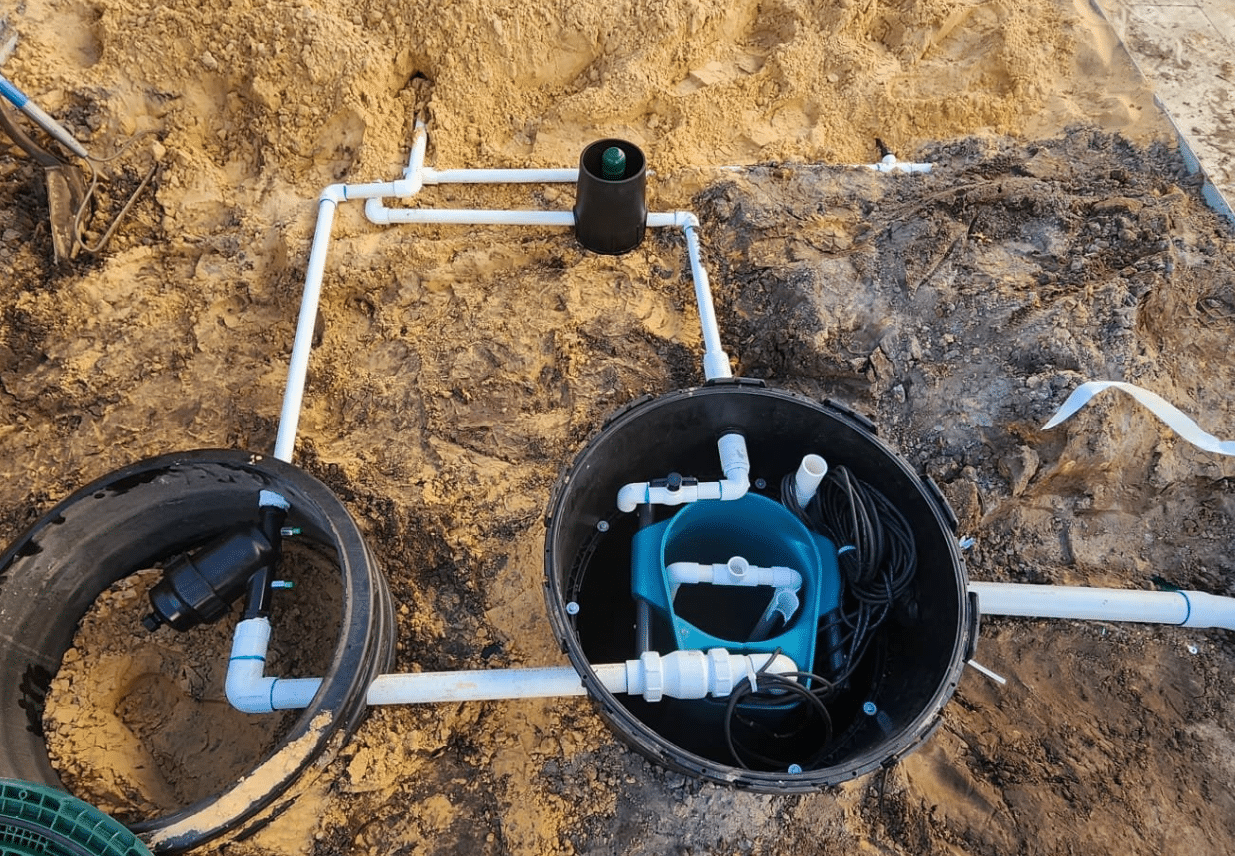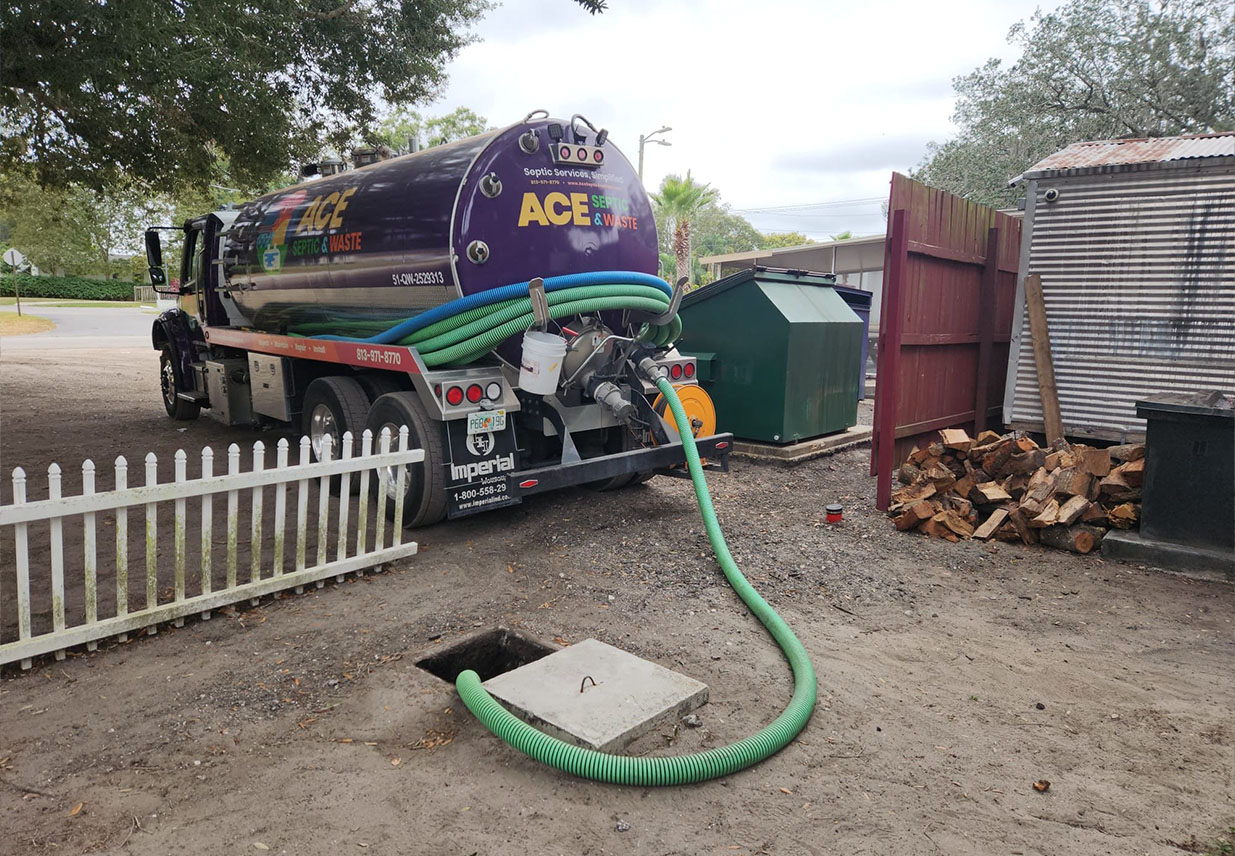Introduction
Waste treatment is a critical aspect of modern civilization, influencing public health, environmental sustainability, and economic efficiency. The way we manage waste can have profound implications for our communities and ecosystems. In this comprehensive guide, "A Deep Dive into the Science Behind Effective Waste Treatment," we'll explore various methods of waste treatment, delve into the science that underpins these processes, and discuss solutions such as septic tank pumping offered by ACE Septic & Waste.
Why Is Waste Treatment Important?
Effective waste treatment is crucial for several reasons:
Public Health: Proper waste handling prevents the spread of diseases. Environmental Protection: It safeguards natural resources and habitats. Economic Efficiency: Efficient waste management can save costs in the long run.In recent years, increasing urbanization has made proper waste treatment Septic tank Pumping more essential than ever.
Understanding Waste Types
Household Waste
Household waste consists mainly of organic materials, plastics, metals, and paper products. Each type requires different treatment methods to minimize its environmental impact.
Industrial Waste
Industrial waste varies significantly from household waste due to its chemical composition and potential hazards. Effective treatment methods must be employed to ensure safety.

Hazardous Waste
Hazardous waste poses significant risks to health and the environment. Specialized treatment techniques are necessary to handle these materials safely.
The Science of Waste Treatment
Biological Treatment Methods
Biological treatments utilize microorganisms to break down organic matter in waste. This method is particularly effective for sewage and agricultural runoff.
Aerobic vs Anaerobic Processes
- Aerobic Digestion: Utilizes oxygen-loving bacteria. Anaerobic Digestion: Works without oxygen, producing methane as a byproduct.
Physical Treatment Methods
Physical treatments involve separating solid waste from liquids using mechanical processes like filtration or sedimentation.
Importance of Mechanical Separation
Mechanical separation is vital for recycling efforts and helps reduce landfill usage.
Chemical Treatment Methods
Chemical treatments involve adding chemicals to hazardous wastes or leachate to neutralize harmful components.
Common Chemicals Used in Treatments
- Lime Chlorine Ozone
Thermal Treatment Methods
Thermal treatments involve high-temperature processes such as incineration or pyrolysis to reduce waste volume and destroy harmful substances.
Septic Systems and Their Functionality
Septic systems play a vital role in rural areas where centralized sewage systems are unavailable. They treat wastewater through natural processes in underground tanks.


How Do Septic Tanks Work?
Septic tanks operate on simple biological principles:
Settling: Solids settle at the bottom. Bacterial Action: Bacteria break down organic material. Effluent Distribution: The liquid effluent flows into drain fields for further treatment. Ace Septic & Waste
The Role of Septic Tank Pumping
Septic tank pumping is essential for maintaining system efficiency and preventing backups or overflows. Regular pumping ensures that sludge doesn’t accumulate excessively.
When Should You Schedule Pumping?
Most experts recommend septic tank pumping every 3-5 years, depending on usage levels and tank size.
Choosing the Right Service Provider
When it comes to septic tank pumping, choosing a reliable service provider like ACE Septic & Waste can make all the difference in ensuring your system runs smoothly.
What to Look For in a Service Provider?
- Experience Customer Reviews Range of Services Offered Emergency Services Availability
Common Misconceptions About Waste Management
Myth 1: All Waste Can Be Landfilled
Not all waste should end up in landfills; recycling and composting offer better alternatives for many materials.
Myth 2: Septic Systems Are Maintenance-Free
Even though septic systems are designed for longevity, they still require regular maintenance like septic tank pumping from trusted providers such as ACE Septic & Waste.
Innovative Technologies in Waste Treatment
Advanced Oxidation Processes (AOP)
AOPs use powerful oxidants to remove contaminants from wastewater efficiently.
Benefits of AOPs
- High efficiency Reduced chemical usage Versatility across different types of wastewater
Membrane Bioreactors (MBR)
MBRs combine biological treatment with membrane filtration for enhanced purification capabilities.
Advantages of MBR Technology
Space-saving design High-quality effluent production Reduced sludge productionThe Environmental Impact of Poor Waste Management
Poorly managed waste can lead to significant environmental degradation:
Soil Contamination Water Pollution Air Quality DeteriorationLegislation Surrounding Waste Management
Governments worldwide have implemented regulations governing how waste must be treated to protect public health and the environment.
Key Regulations
Resource Conservation and Recovery Act (RCRA)
This U.S.-based act governs solid waste management practices at federal and state levels.
Clean Water Act (CWA)
This act aims to restore and maintain the integrity of U.S. waters by regulating discharges of pollutants.
The Future of Waste Management
With technological advancements on the horizon, future trends include increased automation in sorting processes, improved recycling technologies, and greater emphasis on sustainability practices.
FAQs About Effective Waste Treatment
What Is the Most Common Method Of Treating Household Sewage?
The most common method involves using septic systems that treat wastewater through natural biological processes before dispersing it into drain fields.
How Often Should I Pump My Septic Tank?
Most professionals recommend scheduling septic tank pumping every 3–5 years; however, factors like household size and water usage can affect this timeline.
What Happens If I Don't Pump My Septic Tank?
Failure to pump your septic tank can lead to backups or leaks that may contaminate surrounding soil or groundwater.
Can I Use Chemicals To Break Down Sludge In My Septic Tank?
Using chemicals can disrupt microbial activity essential for breaking down organic matter; therefore, it's best left untouched unless advised by professionals.
How Does ACE Septic & Waste Ensure Quality Service?
ACE Septic & Waste employs experienced technicians who follow industry standards while providing services like septic tank pumping tailored for individual needs.
Is Recycling Really Effective In Reducing Landfill Use?
Yes! Recycling can significantly reduce landfill use by converting materials back into usable resources instead of merely discarding them.
Conclusion
"A Deep Dive into the Science Behind Effective Waste Treatment" reveals how crucial effective management strategies are for our health, environment, and economy alike! Understanding different types of treatments will empower us toward making informed decisions about how we handle our own waste—whether through proper disposal methods or choosing reliable service providers like ACE Septic & Waste when it comes time for regular maintenance tasks like septic tank pumping! The road ahead is clear; let’s commit ourselves not just today but every day toward smarter choices that benefit us all!